-
 Charles Stewart Mott Foundation PartnershipCollaborationEnbridge Line 5 and Other PipelinesFeature HomepageIndigenous CommunitiesLatest NewsMichigan
Charles Stewart Mott Foundation PartnershipCollaborationEnbridge Line 5 and Other PipelinesFeature HomepageIndigenous CommunitiesLatest NewsMichigan“Water is life” is the theme of day 1 of protests to shut down Enbridge Line 5
-A little two lane road and a fence topped with barbwire was all that separated Enbridge Energy’s big Line 5 pumping station and a little park where tribal members from all over the upper Midwest gathered.
00 -
 Charles Stewart Mott Foundation PartnershipCollaborationEnbridge Line 5 and Other PipelinesFeature HomepageIndigenous CommunitiesLatest NewsMichiganNews
Charles Stewart Mott Foundation PartnershipCollaborationEnbridge Line 5 and Other PipelinesFeature HomepageIndigenous CommunitiesLatest NewsMichiganNewsOn eve of Line 5 shutdown deadline, Enbridge vows to defy Michigan order
-The Canadian petroleum company technically has until Wednesday night to stop piping oil through the Straits of Mackinac, according to the state of Michigan. But what happens if the company refuses to abide by Gov. Gretchen Whitmer’s order?
-
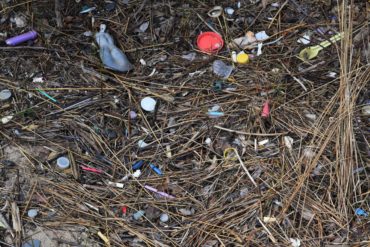 Charles Stewart Mott Foundation PartnershipCollaborationDrinking WaterFeature HomepageLatest NewsMichiganMinnesotaNewsResearch, Data and TechnologyScience, Technology, ResearchWater Quality and Restoration Efforts
Charles Stewart Mott Foundation PartnershipCollaborationDrinking WaterFeature HomepageLatest NewsMichiganMinnesotaNewsResearch, Data and TechnologyScience, Technology, ResearchWater Quality and Restoration EffortsPlastic debris is getting into the Great Lakes, our drinking water, and our food
-Watershed cleanups are popular ways of dealing with local plastic pollution, but once large plastic trash disintegrates into microplastics, they’re nearly impossible to pick up.
-
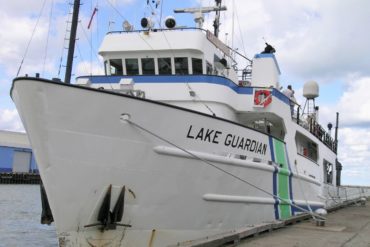 Charles Stewart Mott Foundation PartnershipClimate ChangeFeature HomepageFish, Birds and AnimalsLatest NewsNewsResearch, Data and Technology
Charles Stewart Mott Foundation PartnershipClimate ChangeFeature HomepageFish, Birds and AnimalsLatest NewsNewsResearch, Data and TechnologyScientists Concerned About the Bottom of the Food Web in the Great Lakes
-The warming climate could mean changes for the base of the food web in the lakes, but researchers are not yet sure what those changes might be.
-
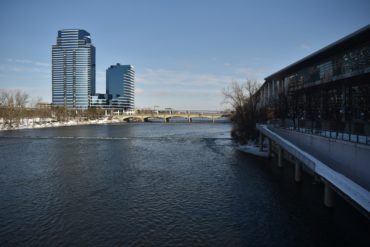 Charles Stewart Mott Foundation PartnershipClimate ChangeCollaborationDrinking WaterGrand RapidsInfrastructureLatest NewsMichiganNewsWater Quality and Restoration Efforts
Charles Stewart Mott Foundation PartnershipClimate ChangeCollaborationDrinking WaterGrand RapidsInfrastructureLatest NewsMichiganNewsWater Quality and Restoration EffortsSome cities are turning to natural infrastructure to deal with extreme rain events
-Climate change in the Great Lakes region means more intense storms. Already some towns are finding they’re flooding where they never have before. One city in Michigan is finding the solution is nature.
-
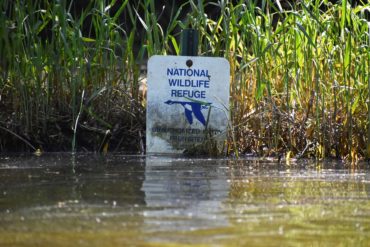 AgricultureCharles Stewart Mott Foundation PartnershipClimate ChangeCollaborationDrinking WaterFish, Birds and AnimalsHabitat RestorationLatest NewsMichiganNewsWater Quality and Restoration Efforts
AgricultureCharles Stewart Mott Foundation PartnershipClimate ChangeCollaborationDrinking WaterFish, Birds and AnimalsHabitat RestorationLatest NewsMichiganNewsWater Quality and Restoration EffortsWetlands can help prevent property damage and save lives during floods
-Last year when the Midland dams gave way, more than 21 billion gallons of water rushed into the Tittabawassee River. More than three and a quarter billion gallons of that ended up in the Shiawassee National Wildlife Refuge.
-
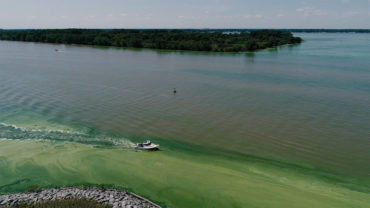 Algae BloomsCharles Stewart Mott Foundation PartnershipCollaborationDrinking WaterLake ErieLatest NewsMichiganNewsResearch, Data and TechnologyScience, Technology, ResearchWater Quality and Restoration Efforts
Algae BloomsCharles Stewart Mott Foundation PartnershipCollaborationDrinking WaterLake ErieLatest NewsMichiganNewsResearch, Data and TechnologyScience, Technology, ResearchWater Quality and Restoration EffortsU of M team makes discovery about Lake Erie dead zone
-New research finds the annual dead zone in Lake Erie is getting a boost that makes it worse very quickly.
-
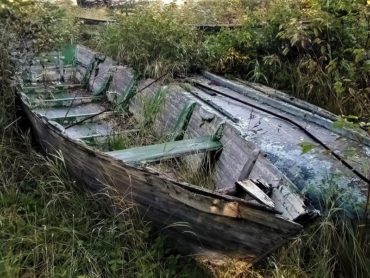 Charles Stewart Mott Foundation PartnershipClimate ChangeDrinking WaterFish, Birds and AnimalsIndigenous CommunitiesInvasive SpeciesLake SuperiorLatest NewsMichiganNewsResearch, Data and Technology
Charles Stewart Mott Foundation PartnershipClimate ChangeDrinking WaterFish, Birds and AnimalsIndigenous CommunitiesInvasive SpeciesLake SuperiorLatest NewsMichiganNewsResearch, Data and TechnologyThe future of Lake Superior with climate disruption
-With warming temperatures, fluctuating water levels and a series of extreme storms, Lake Superior is undergoing dramatic alterations amid climate change.
-
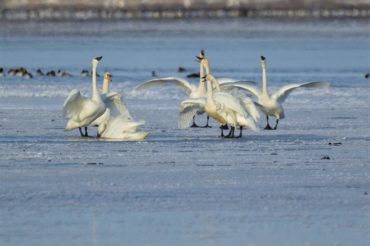 Charles Stewart Mott Foundation PartnershipClimate ChangeDrinking WaterFish, Birds and AnimalsLatest NewsMichiganNewsRecreational Hunting and FishingResearch, Data and Technology
Charles Stewart Mott Foundation PartnershipClimate ChangeDrinking WaterFish, Birds and AnimalsLatest NewsMichiganNewsRecreational Hunting and FishingResearch, Data and TechnologyOn Michigan’s inland lakes, ice fishing with less ice, and fewer fish
-Warming waters are hard on some fish, such as walleye, and more favorable to others, such as smallmouth bass. With so many environmental stresses, it’s difficult to gauge the future of individual lakes.
-
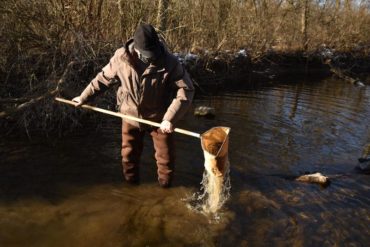 Charles Stewart Mott Foundation PartnershipClimate ChangeDrinking WaterFish, Birds and AnimalsInfrastructureLatest NewsMichiganNewsResearch, Data and Technology
Charles Stewart Mott Foundation PartnershipClimate ChangeDrinking WaterFish, Birds and AnimalsInfrastructureLatest NewsMichiganNewsResearch, Data and TechnologyIntense storms from climate change harming Michigan streams and rivers
-Severe storms can lead to intensive flooding, soil erosion and disruption to fish populations. Timing is everything in nature.

